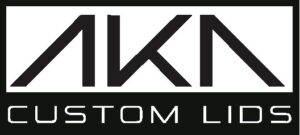By Laura Kocum, Marketing and Communications Director, ABC of Wisconsin
More high school students are expressing interest in construction careers. Wisconsin’s tech-ed teachers are reporting class sizes that are double or triple what they were, even eight years ago. It seems the awareness campaigns to highlight the trades are working. But as these eager workers enter the workforce, they bring with them some needs that might be more unique to their generation. Tech-ed teachers know these students well, and have some helpful advice for employers looking to hire the next generation of construction workers.
Proactively manage cell phone use.
It’s no surprise that cell phones (and all screens) have captured the attention of the incoming workforce. Many do not remember a life without a digital device, and many schools allowed them to carry them to class. Now that they’re entering the workforce, it’s important that employers address phone use up front, and regularly model and enforce the standards on the job site with employees at all levels.
“They want to learn. They want to do the work. They just need clear direction of what is allowed and not allowed,” explains West Bend’s tech-ed teacher Robert Willmas. He expects his students to leave phones in their cars while on job sites, and insists that consistency with this policy sets everyone up for success. He encourages employers to be proactive with phones, in order to ensure safe and successful work environments.
Define expectations and communicate clearly and regularly.
When the younger workforce attended school, the teaching method shifted to a “standards-based” approach to learning. The end result? Students learned to turn in assignments that checked off all the boxes, and if they met expectations, they got the “A.” There was little room for self-guided instruction or learning. On a job site, the work isn’t always a straightforward path, or a pre-defined checklist of the tasks. Newer workers need their supervisors to explain the projects, tell them the steps involved, and explain expectations for the times when there are delays or changes to a project. Even basic steps like, “this is how you use a broom,” is a good discussion to have with your workers, explains Willmas. If workers are trained with consistency, and know the expectations, they will rise to meet them.
Create a culture where failure is a learning opportunity.
If workers make mistakes, you want them to acknowledge and correct them, not hide them or avoid the issue. “This generation has grown up in a culture that publicizes failure. Everything they do can be used against them online, and it impacts their approach to work,” explains Travis Ray, a tech-ed teacher from McFarland. They key, he says, is to use failure as a positive learning opportunity. Don’t berate people when they make mistakes. Instead, help them correct them, and learn from them. This will build their confidence and skill, and provide a clear pay off over the long haul.
There are a significant number of students interested in the trades, and ABC of Wisconsin maintains a list of qualified applicants who are eager to find work and begin an apprenticeship. If you are a contractor looking to add to your team, consider a youth apprenticeship, or contact ABC of Wisconsin to receive a list of qualified applicants. Understanding their excitement for the trades, and also their unique training needs will make the onboarding transition better for everyone on the team.
A longer version of this article is available in the May/June Merit Shop Contractor magazine. Member login is required.













